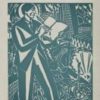~Masterwriter
NOBODY IS FOOLED? Kmart renames plus-size clothing section as ‘fabulously-sized’.
"Remember the steam kettle. Though it's up to its neck in hot water, it continues to sing."
Amen as Men and Women may master their love making domains for completely different reasons
Amen as Men and Women may master their love making domains for completely different reasons
A whisky business - Background Briefing
… 2017 US National Book Award
Coyote Survives A Short, Strange Ride In Toyota’s Grille Jalopnik
How Books Are Read Is As Important As What’s In Them
“It has long been thought, for instance, that the print revolution of the 18th century resulted in a shift from oral to silent reading, from shared reading to indulging in a book of one’s own, as books became more available to a wider range of people while leisure time also increased. But, says Abigail Williams, such a clear-cut transition is difficult to trace.”
Question: What is one thing (in no particular order) behavioural psychologists, filmmakers, journalists and advertisers all understand?
Answer: The power of the narrative; humans like stories
Before the written word was invented, sitting round the campfire at the end of the day telling and retelling tales was how humans conveyed knowledge to each other (and passed it down through the generations): we are genetically predisposed to stories, tales, narratives – call them what you will. We find them an incredibly useful device for processing and storing information. Indeed, many memory-boosting techniques recommend turning data lists into stories in order to improve recall.
If you want someone to remember something start off with these four magic words…
“Once upon a time…”

When Birds Flock Around a Sphere, Beautiful Things Happen The Wire
Answer: The power of the narrative; humans like stories
Before the written word was invented, sitting round the campfire at the end of the day telling and retelling tales was how humans conveyed knowledge to each other (and passed it down through the generations): we are genetically predisposed to stories, tales, narratives – call them what you will. We find them an incredibly useful device for processing and storing information. Indeed, many memory-boosting techniques recommend turning data lists into stories in order to improve recall.
If you want someone to remember something start off with these four magic words…
“Once upon a time…”
The Differences Between Amateurs And Professionals…

Amateurs believe that the world should work the way they want it to. Professionals realize that they have to work with the world as they find it. Amateurs are scared — scared to be vulnerable and honest with themselves. Professionals feel like they are capable of handling almost anything. … [Read More]
When Birds Flock Around a Sphere, Beautiful Things Happen The Wire
SEASON OF SMOKE The Intercept. Naomi Klein

What Happened To Public Intellectuals?…

There are plenty of reasons to commit as citizens to political parties or movements — and there may even be reasons to consider that commitment as partly the product of philosophical reasoning. But someone who speaks as a representative of a fixed ideology or group has subjugated the philosopher within themselves to the partisan. … [Read More]
Voynich manuscript: the solution Times Literary Supplement
Remembering Attica Jacobin
“Nobody’s years, after the age of fifty, are exactly formative; they cannot help being, one way or another, years of reaping as one has sown. That is no great claim to make, and in one’s eighth decade it may be hard to remember when one ever did anything sensible. This is partly a trick of memory, partly no more than facing the sober truth.”
ctive memory, mine included, abbreviates Edward Gibbon’s best-known line to manageable pithiness: “History is indeed little more than the register of crimes, follies, and misfortunes of mankind.”
“Once at a party I met a woman who attended St. Mark’s in-the-Bowery with him in the 1950s. She told me that Auden heard that an old woman in the congregation was suffering night terrors, so he took a blanket and slept in the hallways outside her apartment until she felt safe again.”
A taxonomy and analysis for finding good restaurants
NYT Bestseller For A Day – The Rise And Fall Of A Book Few Had Heard Of
Lani Sarem’s “Handbook for Mortals” improbably topped the NYT Bestseller list last week. Then booksellers called foul, and the book was removed from the list. When Sarem saw the tweets circulating about her book, “my first thought was to just ignore it. It was just a couple of — you know, in my mind — silly tweets.” But as the day stretched on, and as she says neither Stamper nor West reached out to her personally, she reached a different conclusion: “I’m being cyberbullied, basically.”
“Nobody’s years, after the age of fifty, are exactly formative; they cannot help being, one way or another, years of reaping as one has sown. That is no great claim to make, and in one’s eighth decade it may be hard to remember when one ever did anything sensible. This is partly a trick of memory, partly no more than facing the sober truth.”
ctive memory, mine included, abbreviates Edward Gibbon’s best-known line to manageable pithiness: “History is indeed little more than the register of crimes, follies, and misfortunes of mankind.”
“Once at a party I met a woman who attended St. Mark’s in-the-Bowery with him in the 1950s. She told me that Auden heard that an old woman in the congregation was suffering night terrors, so he took a blanket and slept in the hallways outside her apartment until she felt safe again.”
A taxonomy and analysis for finding good restaurants
